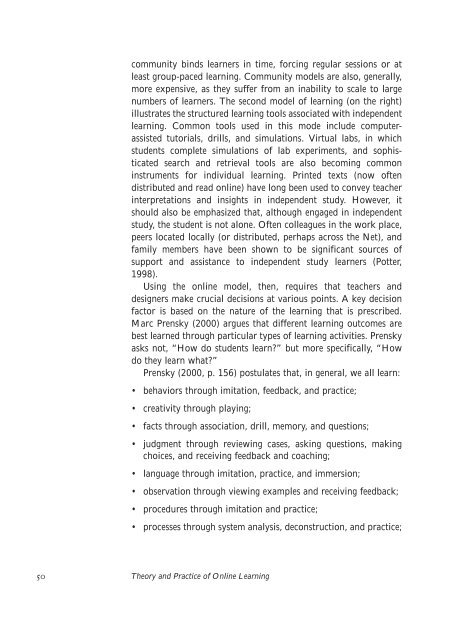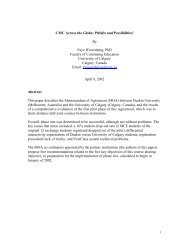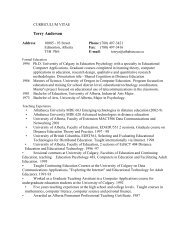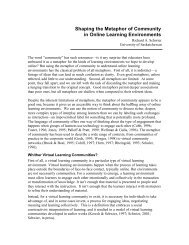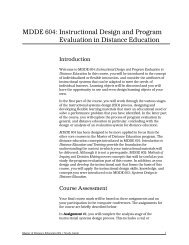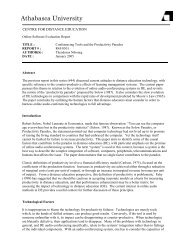Toward a Theory of Online Learning - Centre for Distance Education ...
Toward a Theory of Online Learning - Centre for Distance Education ...
Toward a Theory of Online Learning - Centre for Distance Education ...
Create successful ePaper yourself
Turn your PDF publications into a flip-book with our unique Google optimized e-Paper software.
community binds learners in time, <strong>for</strong>cing regular sessions or atleast group-paced learning. Community models are also, generally,more expensive, as they suffer from an inability to scale to largenumbers <strong>of</strong> learners. The second model <strong>of</strong> learning (on the right)illustrates the structured learning tools associated with independentlearning. Common tools used in this mode include computerassistedtutorials, drills, and simulations. Virtual labs, in whichstudents complete simulations <strong>of</strong> lab experiments, and sophisticatedsearch and retrieval tools are also becoming commoninstruments <strong>for</strong> individual learning. Printed texts (now <strong>of</strong>tendistributed and read online) have long been used to convey teacherinterpretations and insights in independent study. However, itshould also be emphasized that, although engaged in independentstudy, the student is not alone. Often colleagues in the work place,peers located locally (or distributed, perhaps across the Net), andfamily members have been shown to be significant sources <strong>of</strong>support and assistance to independent study learners (Potter,1998).Using the online model, then, requires that teachers anddesigners make crucial decisions at various points. A key decisionfactor is based on the nature <strong>of</strong> the learning that is prescribed.Marc Prensky (2000) argues that different learning outcomes arebest learned through particular types <strong>of</strong> learning activities. Prenskyasks not, “How do students learn?” but more specifically, “Howdo they learn what?”Prensky (2000, p. 156) postulates that, in general, we all learn:• behaviors through imitation, feedback, and practice;• creativity through playing;• facts through association, drill, memory, and questions;• judgment through reviewing cases, asking questions, makingchoices, and receiving feedback and coaching;• language through imitation, practice, and immersion;• observation through viewing examples and receiving feedback;• procedures through imitation and practice;• processes through system analysis, deconstruction, and practice;50 <strong>Theory</strong> and Practice <strong>of</strong> <strong>Online</strong> <strong>Learning</strong>


